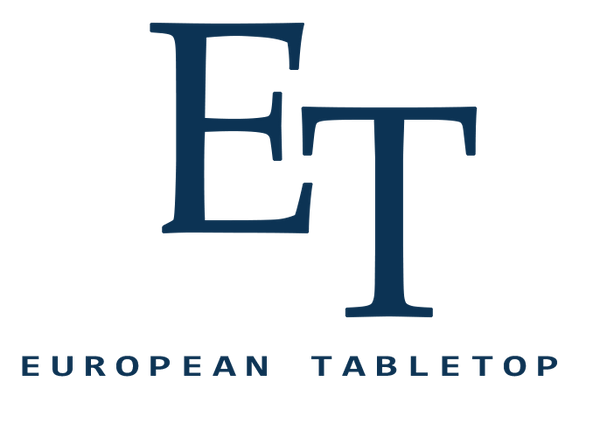Behind the Label: What Food Certifications Really Mean

When shopping for food, you’ve likely noticed labels like “organic,” “fair trade,” and “non-GMO” on your favorite products. These certifications can guide purchasing decisions, but what do they actually mean? Understanding food labels helps ensure your choices align with your values, whether you’re prioritizing health, environmental impact, or ethical practices. Here’s a breakdown of the most common food certifications and what they signify.
1. USDA Organic
One of the most recognized labels, the USDA Organic seal ensures that a product meets strict organic farming and production standards.
-
What It Means:
- Crops are grown without synthetic pesticides, herbicides, or fertilizers.
- Animals are raised without antibiotics or growth hormones and have access to outdoor spaces.
- Products are free of genetically modified organisms (GMOs).
- Why It Matters: Organic farming promotes biodiversity, soil health, and lower environmental impact.
- Look For: The green USDA Organic seal, which guarantees the product is at least 95% organic.
2. Non-GMO Project Verified
This label indicates that a product does not contain genetically modified organisms (GMOs).
-
What It Means:
- Ingredients are verified to be free of genetic modifications through independent testing.
- Focuses on transparency in sourcing and production processes.
- Why It Matters: Many consumers choose non-GMO products for environmental or health-related reasons.
- Look For: The orange butterfly logo on the label, which guarantees third-party verification.
3. Fair Trade Certified
Fair Trade certification ensures that the product supports ethical labor practices and sustainable farming.
-
What It Means:
- Farmers and workers receive fair wages and work in safe conditions.
- Encourages sustainable agricultural practices and community development.
- Why It Matters: This label is important for products like coffee, chocolate, and bananas, where labor exploitation is a significant concern.
- Look For: The black-and-green “Fair Trade Certified” seal.
4. Rainforest Alliance Certified
This certification is designed to protect ecosystems and promote sustainable farming in tropical regions.
-
What It Means:
- Products are grown using methods that protect biodiversity and support local communities.
- Focuses on reducing deforestation, improving farm productivity, and ensuring fair wages for workers.
- Why It Matters: Common on coffee, tea, and chocolate, it supports environmental conservation.
- Look For: The green frog logo, a symbol of environmentally and socially responsible farming.
5. Certified Humane
This label guarantees that animals are raised under humane conditions.
-
What It Means:
- Animals have ample space, shelter, and access to clean water and a nutritious diet.
- Prohibits the use of cages, crates, or tie-stalls.
- Why It Matters: Ensures ethical treatment of animals, which is a priority for many consumers.
- Look For: The Certified Humane logo, often on eggs, dairy, and meat products.
6. MSC (Marine Stewardship Council) Certified
The MSC certification applies to seafood, ensuring that it comes from sustainable fisheries.
-
What It Means:
- Seafood is caught in ways that minimize environmental impact and prevent overfishing.
- Supports the protection of marine ecosystems.
- Why It Matters: Helps consumers make choices that support ocean health and sustainable fishing practices.
- Look For: The blue fish logo on seafood packaging.
7. Gluten-Free Certification
This certification ensures that products meet strict standards for gluten-free content, important for those with celiac disease or gluten sensitivities.
-
What It Means:
- Products contain less than 20 parts per million (ppm) of gluten, as per FDA guidelines.
- Prevents cross-contamination with gluten during production.
- Why It Matters: Ensures safety for individuals with gluten-related health concerns.
- Look For: A “Certified Gluten-Free” logo or FDA-compliant gluten-free labeling.
8. USDA Grass-Fed
This label is for beef and dairy products, indicating the animals were fed grass and forage for most of their lives.
-
What It Means:
- Animals are raised on a pasture-based diet, not grain.
- Often implies better animal welfare and environmental practices.
- Why It Matters: Grass-fed meat and dairy tend to have higher omega-3 fatty acids and lower fat content.
- Look For: The USDA Grass-Fed label or similar certifications from reputable third-party organizations.
9. B Corp Certification
While not exclusively for food, B Corp certification ensures a company meets high standards of social and environmental performance.
-
What It Means:
- The company prioritizes sustainability, fair labor practices, and community impact.
- Reflects a commitment to ethical and sustainable business practices.
- Why It Matters: Helps consumers identify brands that align with their values.
- Look For: The B Corp logo on packaging or company websites.
Tips for Decoding Labels
- Read Beyond the Logo: While certifications are helpful, some terms like “natural” or “farm-fresh” are not regulated and can be misleading.
- Know Your Priorities: Focus on certifications that align with your values, whether that’s sustainability, ethical treatment of workers, or health concerns.
- Do Your Research: Familiarize yourself with certification standards to ensure they meet your expectations.
Final Thoughts
Understanding food certifications empowers you to make informed choices that align with your health, environmental, and ethical priorities. By looking beyond the surface and learning what these labels mean, you can support sustainable farming, fair labor practices, and high-quality products. Next time you’re in the grocery aisle, you’ll know exactly what to look for and why it matters. Happy shopping!
Share:





